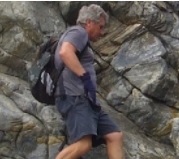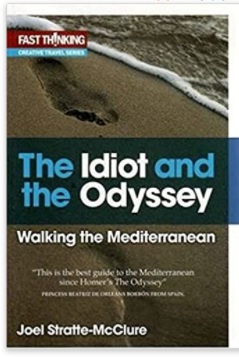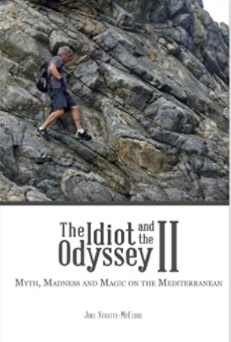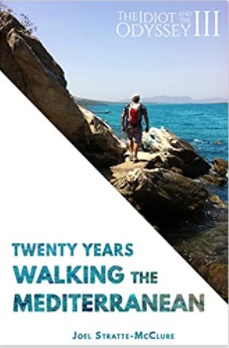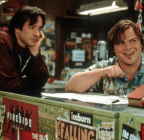Midlife Wanderlust

The greatest midlife crisis ever: a 20-year trek around the Mediterranean. Tweet
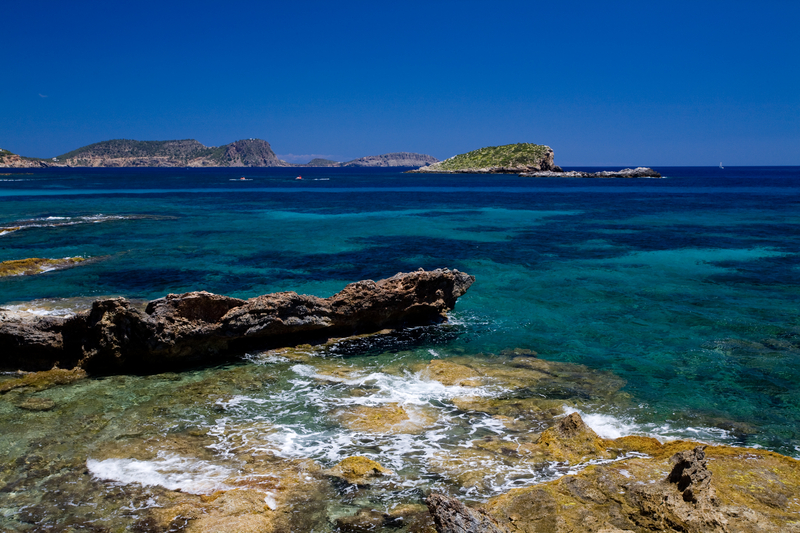
Highlights
It hit suddenly, without any dramatic casus belli or a single hour of psychotherapy. I joined the midlife-crisis crowd.
Mine was truly the midlife crisis of midlife crises; no one had ever been so frenetically avid in his pursuit of wisdom and women. Well, women anyway.
I lost my passport in the sea in Morocco, got robbed by Gypsies in Italy and was arrested in Lebanon as an accused Israeli spy.
“If you don’t want to have sex, that’s okay...,” my burly bodyguard said. I suddenly understood how all the girls I dated in high school must’ve felt.
Like most younger guys, I was confident I could avoid a midlife crisis when I hit my 40s.
I recall chuckling when a friend bought the proverbial red sports car to sprint around Boston. “That will never happen to me,” I declared when another pal left his 50-something wife and three kids for a sexy, 31-year-old PR whiz. I could hardly believe it when one of the smartest guys I knew quit his job as a corporate VP for a three-year retreat to a Tibetan monastery.
But me? Never!
It was too late by the time I more or less came to my senses. My wife had one-upped me by taking up with a nightclub bouncer in his early 20s.
As a reporter based on the French Riviera, enjoying the rewards of an expense account, a blossoming family, lots of friends and a healthy bank balance, I had it all figured out—or so I thought.
Nope. It hit suddenly, without any dramatic casus belli or a single hour of psychotherapy. I joined the midlife-crisis crowd. I told anyone who would listen—or pretended to—that I’d become a hopeless workaholic and needed a real break. I was jaded; even exotic assignments had come to smack of déjà vu. I needed direction in my life, and purpose.
- I grew a beard and ponytail, began going into the garden every morning to gather olives one by one—never mind that sensible people put a net on the ground.
- I stopped accepting assignments and cut my income in half.
- I started leaving home—days at a time—for soulful, spiritual sojourns to monasteries and other idyllic spots.
- I abandoned my wife for a spiritual goddess.
Mine was truly the midlife crisis of midlife crises; no one had ever been so frenetically avid in his pursuit of wisdom and women. Well, women anyway.
It was too late by the time I more or less came to my senses. My wife had one-upped me by taking up with a nightclub bouncer in his early 20s.
Duly chastened but still reeling, I needed to get a grip on things. I was about to turn 50; if ever I was to achieve something of genuine, personal meaning—perhaps the peace I so desperately craved—now was the time, while I still possessed the necessary physical, financial and spiritual resources.
All at once, I knew: I would walk around the Mediterranean! Almost 10,000 miles around the world’s largest inland sea would be at once the ultimate spiritual quest and the adventure of a lifetime—full of danger, romance and God only knew what else!
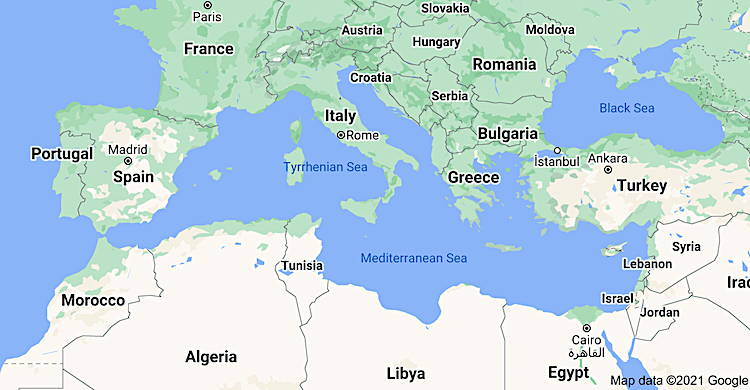
In truth, this was not an entirely new thought. It had in fact first occurred to me at ten, when, entranced, I’d read Greek and Roman myths about epic voyages and the Golden Fleece. I’d even already had a bit of practice in serious-distance walking, having once on assignment walked with my dog, Bogart, from the south of France to Paris.
Still, on some level, I knew it was fanciful. Strolling west from my home near Antibes, I stayed the first night at a Cistercian monastery on an island off Cannes. Setting out the next morning, I thought maybe I’d make it to the Spanish border. I figured my identity crisis by then would be resolved.
But I was still at it a couple weeks later, walking through the world’s largest nudist colony in Le Cap d’Agde. (Guess where I put my pedometer!) Pretty soon, I was writing articles for Time and other publications about my journeys—spiritual and otherwise.
I made it to Spain and (like Forrest Gump) kept on going. Somewhere on the Costa Blanca it occurred to me that (according to Homer) it took Odysseus 20 years to leave home, fight the Trojan War and meander back to his palace in Ithaca. In a flash, without a moment’s reflection, I made a commitment to keep walking around the Mediterranean Sea (albeit intermittently) for 20 years myself—so I did.
About halfway through, I began the first book in what would become The Idiot and the Odyssey trilogy—narratives about my footloose adventures.
Adventures? I had even more than I’d imagined, let alone bargained for. I lost my passport in the sea in Morocco, got robbed by Gypsies in Italy and was arrested in Lebanon as an accused Israeli spy.
Yet it was the more personal, quiet, sometimes mystical stuff that led to serious reflection and self-examination. On a pilgrimage to the Siwa Oasis near the Libyan border to consult the oracle of the god Ammon, I met a Polish “light worker” whom I dubbed “The Woman in a Scarf.” During my third trance of the quantum-hypnosis sessions that followed, I actually time-traveled and conversed with Alexander the Great. He had been in Siwa in 331 B.C. but served as my mentor throughout the remainder of the years-long stroll along the Mediterranean.
Other encounters—and lessons—were decidedly more earthbound. One evening, my burly, bisexual bodyguard at the Syrian border put his hand on my knee and said, with ardent hope, “If you don’t want to have sex, that’s okay; I just want to be close to you.” Suddenly, I belatedly understood how all those girls I dated in high school (and a few after that) must’ve felt.
Dozens of people of assorted origin joined me at various points throughout my MedTrek. Trust me, there’s no better way to know someone than to walk side by side across astonishing terrain for 20, 40 or 80 miles—and, walking in solitude, no better way to know yourself.
Am I wiser than I was? …can’t say. I’m certainly more calm and content. I now look eagerly forward to gaining additional self-knowledge during the rest of my life. The goal is the path; “the path is the goal,” according to the Buddhist teaching, which I recited throughout my MedTrek.
What’s next?
Why not the Pacific?
More From Joel Stratte-McClure
